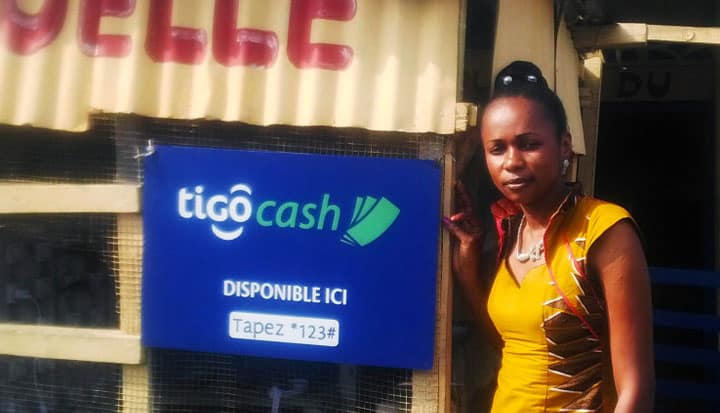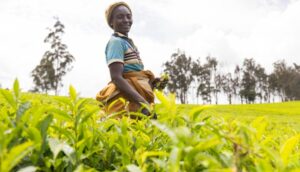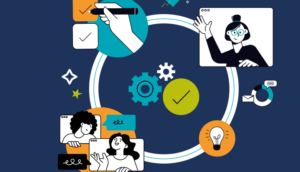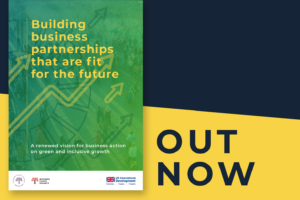The best salespeople understand why you need something, because they once lived without it – they know exactly the difference it can make. Empowered women make it their job to tell other women. In the Democratic Republic of Congo (DRC), becoming a mobile money subscription saleswoman is an opportunity for women in one of the world’s poorest countries to earn money they can control themselves – often for the first time.
Women are talking. Women trust other women; they understand the challenges of a patriarchal society. Why would a woman trust a man who is offering to increase her income if it is customary law for a woman to hand over cash to their husbands?
“More females will sign up through female agents because they have the confidence to talk to their peers about money,” explains Cathy, a mobile money subscription agent.
Carrying cash in DRC can be dangerous. Mobile money puts women less at risk of being mugged or abused for their cash incomes. “Having mobile money has changed my spending habits. I think that if we have more women as agents and as customers, we will be safer.”
Women also tend to be sceptical of technology – this is a global trend. Their responsibilities to the household are their priority, and technology was not integral to this – until now.
Technology gives married women control over their income in countries where they are unable to access credit or open a bank account without their husband’s permission. Commission-based earnings are received through agents’ mobile phones. Cathy describes the difference not using cash has made: “I have more control over my money, I spend less because to spend it, I need to ask an agent to withdraw.” Women spend 90% of their earned income on their families; men spend from 30-40% – the overall impact therefore goes beyond the family unit – women invest in opportunities for children and a better standard of living.
One African mobile giant has adopted a new business model that utilises more women. The case for investment in women is clear: invest in women and your market grows. Of the last 416 subscription agents they trained, 167 were women. For many, this is the only formal training they’ve ever received – knowledge they can use in the future.
Edith, another agent, believes that this model can expand. “More women agents mean better awareness and education for women to adopt mobile money and more testimonies from other women.” Word-of-mouth marketing is a key part of commercial success for mobile network operators, especially as currently male agents do not attract women to the market, which is hugely damaging for business.
Business in the DRC is big. The country is the size of western Europe and is embracing every opportunity to recover from the 2009 economic slump – so today’s successful pilot could be tomorrow’s biggest business opportunity. In DRC, multinational presence is low, so this is an opportunity to catalyse private sector change at the highest levels for the benefit of poor women. Recruitment of exclusively female agents has inspired other providers to test out increased training and support to its existing and new agents, including a greater emphasis on recruiting women agents.
International development needs more dynamic partnerships. Here, mobile phone operators are bringing women into a market through a commercial drive, which delivers greater social freedoms for women and economic control.
“Mobile cash, has become my cashier. I keep all the money I earn in the phone and it gives me more control over my income,” says Edith. She knows other women don’t have the same opportunities, so her job is to tell other women about the freedoms they could have.
Adam Smith International is working with the Department of International Development (DFID) to deliver and implement Making Markets Work for the Poor programmes in some of the poorest countries in the world. Our programmes work with the private sector to increase the incomes and economically empower poor women.










